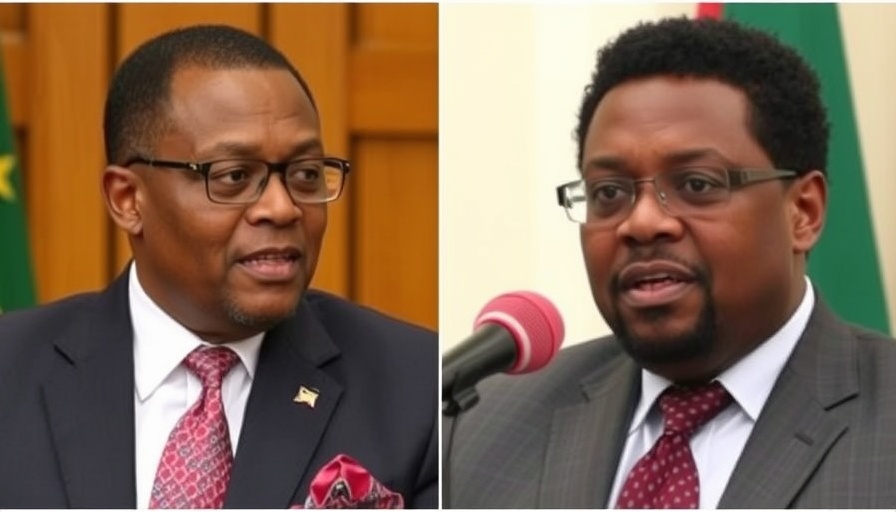
Witchcraft Convictions: A Look into Zambia's Legal System
The conviction and sentencing of Mozambican Jasten Mabulesse Candunde and Zambian Leonard Phiri for attempting to bewitch President Hakainde Hichilema is emblematic of the intersections between cultural beliefs and the legal framework within Zambia. Following a trial highlighted by the bizarre discovery of a live chameleon and other mystical paraphernalia, the magistrate underscored that such actions not only endangered the head of state but were also an affront to all Zambians. With convictions tied directly to how these men professed to wield supernatural powers, this case raises profound questions about the boundaries of belief systems and state laws in a country where witchcraft accusations are relatively uncommon yet deeply feared.
The Unusual Case Prompting National Discourse
Witchcraft has long held a grip on the imagination of many Zambians, often seen as an ill-defined menace shrouded in mystery. The law against witchcraft, which dates back to 1914, was not frequently enforced until recent times, making this case a rare spotlight on a tenuous area of Zambian law and cultural belief. President Hichilema, known for his devout Christian faith, stands as a critical figure in navigating these treacherous cultural waters while campaigning for reelection amid claims that his administration targets political adversaries through the judiciary.
Political Implications and Cultural Beliefs
This case strikes a chord among Nigerians and broader African audiences, revealing how local beliefs can collide with political agendas. The alleged plots against President Hichilema come in a environment where, despite his calls for unity and governance reform after years of political turmoil, accusations of witchcraft present a distraction that could be used strategically in a heated electoral cycle. As he gears up for a second term, the president's ability to manage narratives around such culturally sensitive subjects could prove pivotal.
Witchcraft in the Context of Governance
Witchcraft as a legal concept raises overarching concerns about governance in Zambia and enhances a picture of an African political landscape fraught with suspicion and skepticism. Public perceptions about witchcraft often reflect wider societal underpinings, including distrust towards political figures and institutions. The magistrate's commentary alludes to a more significant fear factor regarding those wielding influence, communicating that such behaviors jeopardize cohesion in a fragile state. Understanding these dynamics offers vital insights into current and future governance in Zambia, especially for policymakers aiming toward economic development.
As Zambia stands at the crossroads of intricate political narratives heavily intertwined with cultural perceptions, it will be essential for leaders and investors alike to mindfully consider these themes in their efforts toward crafting developmental strategies that resonate authentically with the populace.
 Add Row
Add Row  Add
Add 


Write A Comment